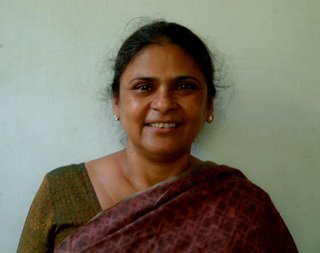Sparking Growth- Meet Sheela Patel

Sitting with Sheela Patel, the founder of SPARC in her offices deep in the whirl of Mumbai, sitting back and sipping a cup of chai, she let the story of SPARC unfold.
To Sheela and SPARC there are a few acknowledgements which have to be made. Firstly that the slums are growing. Fast. It’s not just the result of rural migration, but the slum population itself is in its second, third or forth generation. And growing.
Next. The slums have to be acknowledged for what they are. Communities which are contributing to the economy and deserve the legal recognition of their existence (many currently are ‘unofficial’, which means residents have little security or land rights).
Next. That those same communities should have an equal say in how their community should develop and grow and this means really acting on what ‘partnership’ really means. Sheela would agree that partnership in much development speak is lip service. Organisations say they ‘partner’ with their communities but do not really understand or respond to the community needs, especially when the risks of doing so for their own organisation is high.
This really is the crux of Sparc. ‘There is a big gap between saying that you want to partner, and actually doing it’, said Sheela. She finds that after 3 or 4 years most NGOs are afraid to take risks, whereas most poor peoples lives are full of risks. Too often, Sheela believes, the interests of the institution are put before the interests of the constituency that they serve. For SPARC it has taken nearly thirty years to build relationships with the slum communities, to build the trust which is required for the change to occur but that is how long it has taken to now do what they do.
And what to they do? Many things. Mainly SPARC acts in an advocacy role for the slum communities, representing their needs and rights to government. They have been pushing for land rights reform, pressing for tenancy agreements within the slum, so that dwellers can invest in housing and infrastructure, and so have ‘security nets’ to fall back on. What you need to secure those nets though, Sheela explained to me, ‘is large numbers of people, working over a long period of time’. Which is where SPARC comes in, acting as a catalyst to bring a collective voice together; those large numbers Sheela talked about, and not being afraid if this takes time.
The idea behind SPARC was to share the risks with the slum dwellers, and always maintain their relevance to the needs of the communities their partner with. “The question was, can we put the skill sets of what poor people have when they survive in such difficult circumstances’, explained Sheela, ‘and can we match them to the skills sets we have, so we can produce a complementary set of skills sets that can push this process beyond where it is, to transform this”.
Sheela summarised. ‘So the process is how to form the partnership, and how to form strategies and mechanisms for people to stay organised over a long period of time, because you just don’t get tenure in two years.


2 Comments:
Hello:
I read your article. its very impressive teh kind of noble work you are doing. I was wondering if you are the same Sheela Patel who used to live on 15th road Khar. I was a childhood friend of yours, living on 15th road also, opposite your bungalow. I will be happy to hear from you.
Email: pflower01@aol.com
thanks, Poonam Nath
2:31 am
Hey Clare,
I had a chance to attend a lecture series where Sheela was one of the key speakers. I share the same world as her so I was really absorbed with what she presented. However, it was very interesting to see her spreading her activism spirit in a room full of a bunch of white-collar architects.
Nice article and blog!
Cheers, devin
7:53 am
Post a Comment
<< Home